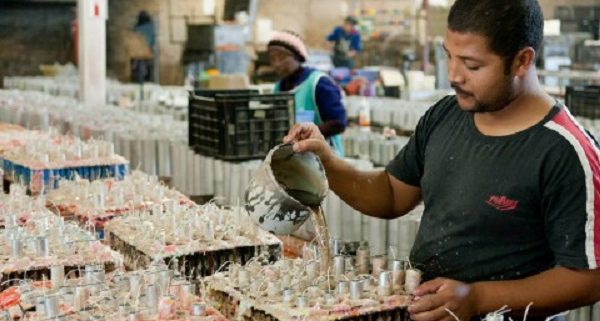Fair Trade – A Way of Life
September 26, 2016
Many museum stores offer a selection of Fair Trade products and proudly display the World Fair Trade Organization (WFTO) logo to communicate that the products are fairly traded. There is a ‘feel good’ factor associated with these items resulting in increased sales due to ‘emotional’ purchases – a direct response to the connection made between Fair Trade and quality merchandise. However, do you or your customers really know what it means for a company to be committed to Fair Trade practices? Knowledge of this commitment can do a world of good and at the same time, further increase your store sales.
Fair Trade is not just a way of trading; it is a way of life. It proves that greater justice in world trade is possible. Fair Trade highlights the need for change in the rules and practice of conventional trade and shows how a successful business can also put people first. It is also a tangible contribution to the fight against poverty, climate change and economic crisis.
The WFTO aims to improve the livelihoods of disadvantaged people in developing countries by linking and strengthening organizations that offer alternatives to unfair trade structures and practices. Their members come together in solidarity to create an alternative and fairer way of doing business. WFTO members share the following 10 practices:
1. Commitment to Fair Trade
To trade with concern for social, economic and environmental well-being. This means equitable commercial terms, fair wages and fair prices.
2. Transparency
To openly and regularly share financial information, management policies, product sources, marketing, and development program plans.
3. Ethical Issues
To reflect in their structures a commitment to fair employment, public accountability and progressive work practices. To aim for adequate income for workers to meet their basic needs, which include health care, education, and the capacity to save.
4. Working Conditions
To provide a safe working environment allowing individuals to grow and reach their potential by ensuring that work is carried out in humane conditions using appropriate materials, technologies, and good work practices.
5. Equal Employment Opportunities
To oppose discrimination and ensure equality of employment opportunities for both men and women who suffer from the effects of poverty, racial, cultural, and/or gender bias.
6. Concern for People
To promote development which improves the quality of life and is sustainable to both people and the natural world. There will be no exploitation of child labor. Trading activities should not violate indigenous peoples’ claims on land or any vital resources important to their way of life.
7. Concern for the Environment
To encourage the trading of goods which are environmentally friendly and manage resources in a sustainable way to protect the environment.
8. Respect for Producers’ Cultural Identity
To encourage production and development of products based on producers’ cultural traditions and natural resources.
9. Education and Advocacy
To promote fair trade by encouraging people to consume based on issues of social justice and concern for the environment. To support campaigns for international policies that will improve the living conditions of the poor in developing countries as well as increase awareness, understanding, and respect of cultural values.
10. Working Relationships
To establish relationships within a framework of trust and mutual respect, avoiding prejudice or harm to colleagues’ images and reputations. These relationships are based on fair exchanges and extend beyond trading. WFTO members and observers agree to negotiate their differences through open and direct dialogue.
And imagine what a better place the world would be if all companies adhered to these 10 practices? It is not just about justice in third world countries, but justice in the world workplace. Transparency, concern for the environment, intercultural respect, fair income, and benefits; these are sound bites from challenges faced in some of the many well-known companies here in the United States.
This is a ‘big’ message to communicate to your customers and this is your opportunity to give back to the many companies that work so hard for these justices and WFTO recognition. Consider finding the best way to communicate this important message in your store. The WFTO does not have a readymade sign that is easy to display, but you could create your own flyer or sign listing the 10 WFTO practices. Proudly display your sign or distribute flyers with purchase and the ‘feel good’ factor will be multiplied x 10! And if you send your finished sign designs to me, I will share them with the MSA community on ShopTalk so that other stores can print and use.
Pictured above and below is Kapula Candles and Ceramics, located in Bredasdorp, South Africa. They employ approximately 150 people in this small farm community, most of whom are single mothers. Kapula is an excellent example of the types of small artisan companies who ‘live their work’ and are guaranteed members of the WFTO. We, Thumbprint Artifacts, have come to know them, admire what they give back to their community, and greatly respect their commitment to these practices. We proudly represent them in the United States.

Kris Engle, Co-Founder, Thumbprint Artifacts
kris@thumbprintartifacts.com
www.thumbprintartifacts.com










Leave a Reply
Want to join the discussion?Feel free to contribute!